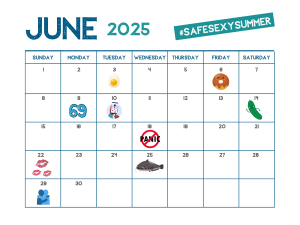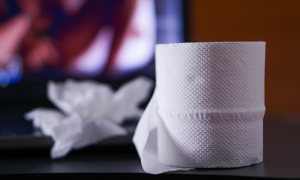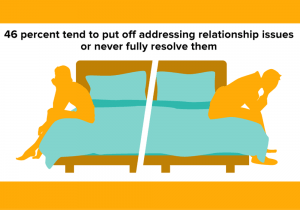
Celebrate the Start of #safesexysummer in June
It’s time to celebrate the start of summer! June is filled with national observances to help you start the summer off right. We’re here to help make June the start of a #safesexysummer.

Each year, the World Association for Sexual Health (WAS) celebrates World Sexual Health Day on September 4th, and the theme for the 2024 observation is Positive Relationships.
During Sexual Health Month in September, we’re taking up the call from WAS to talk about positive relationships—and you can join us! Explore this page to discover content from ASHA and others on the topic.
Relationships can be different. They’re not just about love; they include how we get along with friends, family, health care providers and others we meet. Every kind of relationship is important and makes life interesting.
Building a healthy relationship with yourself is the key to fulfilling connections with others. Swipe through the images to explore the pillars of self-love: confidence, mindfulness, and embracing your body.
Let’s talk about a crucial aspect of healthy relationships: knowing and sharing your STI status. Knowledge is power, and open communication builds trust. Swipe or scroll to learn more!
Romantic relationships can be wonderful! But while it’s important that partners care for each other, it’s just as important that you take care of yourself and be aware of signs of abuse. Abuse doesn’t always mean that someone hits or hurts your body. Emotional abuse is anything that harms your self-esteem or causes shame. This includes saying things that hurt your feelings, make you feel that you aren’t worthwhile, or trying to control who you see or where you go. Scroll or swipe to learn about warning signs of an unhealthy relationship.

It’s time to celebrate the start of summer! June is filled with national observances to help you start the summer off right. We’re here to help make June the start of a #safesexysummer.

In this essay, certified sexuality counselor Evelyn Resh reflects on how our sex lives and perceptions of pleasure change over time.

Featuring interviews with medical professionals and experts in the field of sexuality, ASHA’s Sex+Health podcast aims to offer information and resources to with the goal of helping people take charge of their sexual health.

The number one complaint of women that I see for sexuality counseling is that they have no libido – zip, gone, disappeared. Contrary to what many of us assume, this happens to women of all ages and levels of love, attachment, and attraction to their

Don’t be shy to talk with your partner about safer sex and condoms: For both of you, this is one of the most important conversations you can have. It’s also one of the smartest!

A new paper suggests that there are biological and evolutionary reasons that we masturbate and looks to our ape ancestors for evidence. There is evidence starting around 40 million years ago that the ancestors of all monkeys and apes did indeed masturbate.

Whether we’re attracted to the opposite gender, the same gender or both, the truth is: We learn how to experience sexual pleasure for pleasure’s sake by understanding our own sexual desires and responses.

Why aren’t couples talking about sex? Despite increasing public acceptance of sex as an everyday topic and a trend towards more empowered health consumers, people continue to feel uncomfortable talking about sexual health issues—even behind closed doors.
ASHA believes that all people have the right to the information and services that will help them to have optimum sexual health. We envision a time when stigma is no longer associated with sexual health and our nation is united in its belief that sexuality is a normal, healthy, and positive aspect of human life.
ABOUT
GET INVOLVED
ASHA WEBSITES
GET HELP
© 2025 American Sexual Health Association